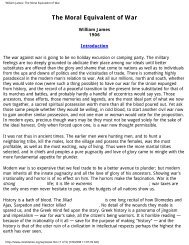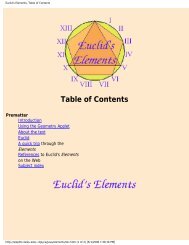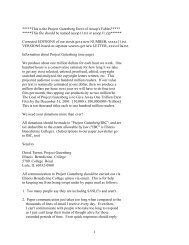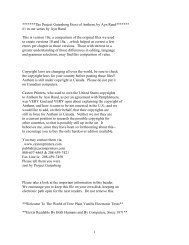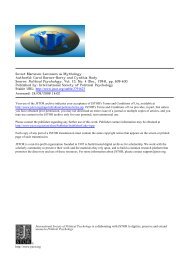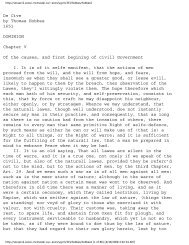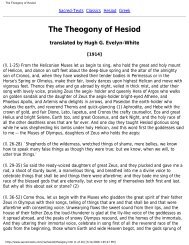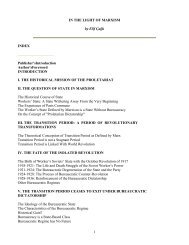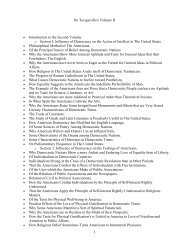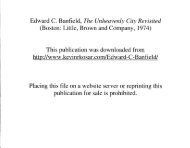Project Gutenberg Etext of The Large Catechism, by Martin Luther
Project Gutenberg Etext of The Large Catechism, by Martin Luther
Project Gutenberg Etext of The Large Catechism, by Martin Luther
Create successful ePaper yourself
Turn your PDF publications into a flip-book with our unique Google optimized e-Paper software.
virtue for one always to explain advantageously and put the best<br />
construction upon all he may hear <strong>of</strong> his neighbor (if it be not<br />
notoriously evil), or at any rate to condone it over and against the<br />
poisonous tongues that are busy wherever they can pry out and discover<br />
something to blame in a neighbor, and that explain and pervert it in<br />
the worst way; as is done now especially with the precious Word <strong>of</strong> God<br />
and its preachers.<br />
<strong>The</strong>re are comprehended therefore in this commandment quite a multitude<br />
<strong>of</strong> good works which please God most highly, and bring abundant good and<br />
blessing, if only the blind world and the false saints would recognize<br />
them. For there is nothing on or in entire man which can do both<br />
greater and more extensive good or harm in spiritual and in temporal<br />
matters than the tongue, though it is the least and feeblest member.<br />
<strong>The</strong> Ninth and Tenth Commandments<br />
Thou shalt not covet thy neighbor's house. Thou shalt not covet thy<br />
neighbor's wife, nor his man-servant, nor his maid-servant, nor his<br />
cattle, nor anything that is his.<br />
<strong>The</strong>se two commandments are given quite exclusively to the Jews;<br />
nevertheless, in part they also concern us. For they do not interpret<br />
them as referring to unchastity or theft, because these are<br />
sufficiently forbidden above. <strong>The</strong>y also thought that they had kept all<br />
those when they had done or not done the external act. <strong>The</strong>refore God<br />
has added these two commandments in order that it be esteemed as sin<br />
and forbidden to desire or in any way to aim at getting our neighbor's<br />
wife or possessions; and especially because under the Jewish government<br />
man-servants and maid-servants were not free as now to serve for wages<br />
as long as they pleased, but were their master's property with their<br />
body and all they had, as cattle and other possessions. Moreover,<br />
every man had power over his wife to put her away publicly <strong>by</strong> giving<br />
her a bill <strong>of</strong> divorce, and to take another. <strong>The</strong>refore they were in<br />
constant danger among each other that if one took a fancy to another's<br />
wife, he might allege any reason both to dismiss his own wife and to<br />
estrange the other's wife from him, that he might obtain her under<br />
pretext <strong>of</strong> right. That was not considered a sin nor disgrace with them;<br />
as little as now with hired help, when a proprietor dismisses his<br />
man-servant or maid-servant, or takes another's servants from him in<br />
any way.<br />
<strong>The</strong>refore (I say) they thus interpreted these commandments, and that<br />
rightly (although their scope reaches somewhat farther and higher),<br />
that no one think or purpose to obtain what belongs to another, such as<br />
his wife, servants, house and estate, land meadows, cattle, even with a<br />
55



